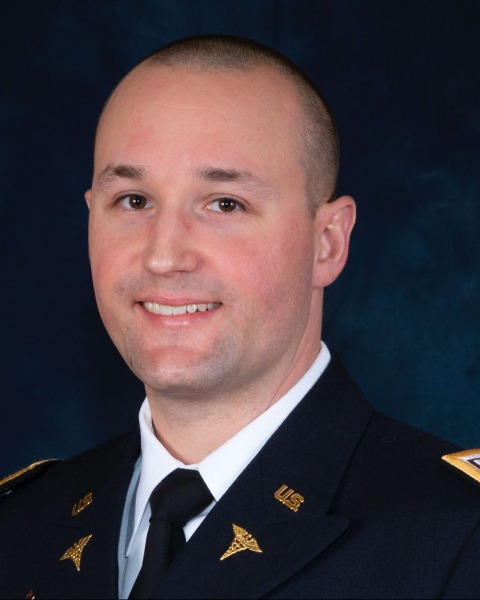Back
Poster, Podium & Video Sessions
Moderated Poster
MP21: Sexual Function/Dysfunction: Evaluation I
MP21-18: New findings regarding surgeon variations in perioperative evaluation of penile prosthesis patients
Saturday, May 14, 2022
7:00 AM – 8:15 AM
Location: Room 222
David Barham*, Orange, CA, Martin Gross, Lebanon, NH, Aubrey Reeves, Colton, CA, Cobi Reisman, Amsterdam, Netherlands, Eric Chung, Brisbane St Lucia, Australia, Faysal Yafi, Orange, CA

David W. Barham, MD
Brooke Army Medical Center
Poster Presenter(s)
Introduction: In penile prosthetic urology, preoperative evaluation and accurate history-taking are critical to optimizing treatment plans and expectations. Postoperative assessment is important in evaluating outcomes. No prior studies have evaluated variations in the perioperative evaluation process among penile prosthetic surgeons.
Methods: A 23 question survey was sent to prosthetic urologists through the Society of Urologic Prosthetic Surgeons, Sexual Medicine Society of North America, European Society for Sexual Medicine, and the International Society for Sexual Medicine. The survey assessed surgeon demographic and practice information, preoperative evaluation including assessment of sexual history questions, and postoperative assessment. Questions were answered on a likert scale (always, more than half of the time, half of the time, less than half of the time, never).
Results: The majority of surveyed penile implant surgeons (85%) assess patients’ grip strength before surgery and 98% discuss patients’ expectations before surgery. Less than half (44%) ask patients about their sexual orientation. Only 38% obtain a psychiatric history but 63% evaluate the impact of sexual function on patient self-esteem. A minority (35%) ask about the intended use of the implant and 61% commonly ask about partner sexual function. Few (27%) implanters regularly ask about the type of sexual activity patients engage in (i.e. oral, vaginal, anal). Postoperatively, 95% of implanters ask about patient satisfaction but only 64% routinely assess partner satisfaction. Only 11% of implant surgeons use a questionnaire to evaluate postoperative satisfaction.
A total of 88 urologists completed the survey, 3 were excluded because they did not perform penile prosthesis (PP) surgery. Surgeons had been in practice for a mean of 17.8 ± 9.1 years following completion of training and performed a mean of 68.2 ± 3.5 implants per year. The majority were either in academic (37%) or private (32%) practice, and 57% had completed fellowship training in andrology, sexual medicine, or prosthetic urology.
Conclusions: There is much room for improvement in perioperative patient assessment and evaluation among prosthetic surgeons. This is especially true in regards to assessment of patients’ sexual orientation, intended use of PP, type of sexual activity, and partner sexual function and satisfaction.
Source of Funding: None
Methods: A 23 question survey was sent to prosthetic urologists through the Society of Urologic Prosthetic Surgeons, Sexual Medicine Society of North America, European Society for Sexual Medicine, and the International Society for Sexual Medicine. The survey assessed surgeon demographic and practice information, preoperative evaluation including assessment of sexual history questions, and postoperative assessment. Questions were answered on a likert scale (always, more than half of the time, half of the time, less than half of the time, never).
Results: The majority of surveyed penile implant surgeons (85%) assess patients’ grip strength before surgery and 98% discuss patients’ expectations before surgery. Less than half (44%) ask patients about their sexual orientation. Only 38% obtain a psychiatric history but 63% evaluate the impact of sexual function on patient self-esteem. A minority (35%) ask about the intended use of the implant and 61% commonly ask about partner sexual function. Few (27%) implanters regularly ask about the type of sexual activity patients engage in (i.e. oral, vaginal, anal). Postoperatively, 95% of implanters ask about patient satisfaction but only 64% routinely assess partner satisfaction. Only 11% of implant surgeons use a questionnaire to evaluate postoperative satisfaction.
A total of 88 urologists completed the survey, 3 were excluded because they did not perform penile prosthesis (PP) surgery. Surgeons had been in practice for a mean of 17.8 ± 9.1 years following completion of training and performed a mean of 68.2 ± 3.5 implants per year. The majority were either in academic (37%) or private (32%) practice, and 57% had completed fellowship training in andrology, sexual medicine, or prosthetic urology.
Conclusions: There is much room for improvement in perioperative patient assessment and evaluation among prosthetic surgeons. This is especially true in regards to assessment of patients’ sexual orientation, intended use of PP, type of sexual activity, and partner sexual function and satisfaction.
Source of Funding: None

.jpg)
.jpg)